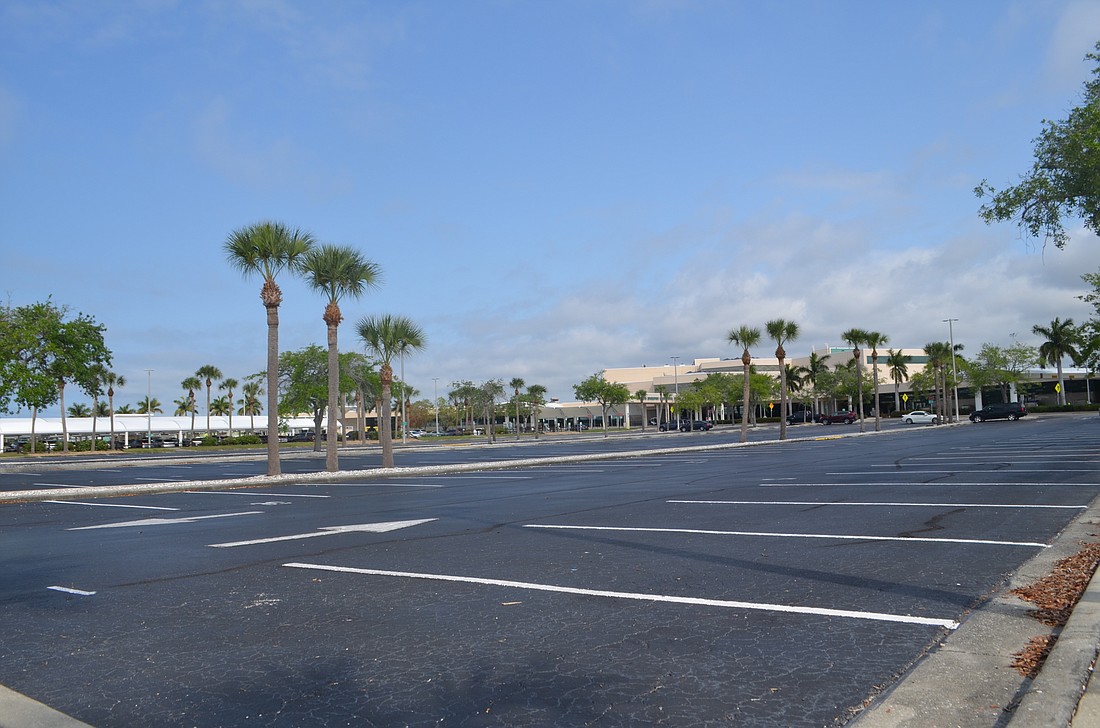- December 23, 2024
-
-
Loading

Loading

The addition of new flights at Sarasota Bradenton International Airport in 2018 and 2019 led to months of record-setting traffic, culminating in an all-time high in February that appeared poised to be topped in March.
When the state and country began to mobilize a response to COVID-19 in earnest, all that changed rapidly.
“By mid-March, it fell off a cliff,” airport President and CEO Rick Piccolo said. “We’re down probably 97% from where we were last year. We’re doing a few hundred passengers a day when we should be doing 10,000 a day.”
That decrease in activity has resulted in a dramatic decrease in revenue for the airport, which has no taxing authority and largely relies on generating income through the facility itself. Business is down across the board, from the airlines and businesses that operate at the airport to parking fees. Piccolo estimated monthly airline-related revenue was down about $1.5 million, and he anticipated the situation would remain unchanged through at least April.
Piccolo said the airport’s approach to fiscal management served as good preparation for a drop off in air traffic. SRQ has about $19 million in reserve funding, money Piccolo said should be adequate to keep things running for the immediate future.
“Right now, we’re at least well positioned to endure this for a while,” Piccolo said.
Although traffic at SRQ has slowed down, it hasn’t stopped completely. Flights are still coming in from throughout the country — including some from the New York City area, a national hot spot for COVID-19 cases. That was a point of concern for Sarasota resident Devin Rutkowski, who has contacted officials asking why the airport hasn’t shut down all routes from New York.
The governor has signed an executive order directing all individuals arriving in the state “from an area with substantial community spread” to isolate themselves for 14 days after arriving. Rutkowski said he’s gotten no indication from officials how that would be enforced.
“I don’t understand why we as a community are allowing this,” Rutkowski said in a series of emails to airport and city officials.
Piccolo said the only individual with the authority to ground flights is the U.S. president. Piccolo said the airport has the power to close its airspace in case of emergency, such as a plane crash, but that right to stop airline flights is limited.
Piccolo also said the airport does not have the authority to screen passengers. He said that power lies with the Florida Department of Health, which did not respond to a request for inquiry ahead of publication. Piccolo noted the cleaning procedures within the airport have been heightened, and he said the reduced number of arriving passengers appear to be adhering to health guidelines related to COVID-19.
“You are seeing passengers exercise a lot of the recommended actions — spacing, covering their mouths with a mask,” Piccolo said. “People are being careful.”
As long as most flights into SRQ are canceled, the airport isn’t taking on new projects that would require additional spending, but it is using the decrease in traffic to do work that would have otherwise taken longer to complete. One example: Crews will resurface the parking lot at the airport, which Piccolo said typically has about 50 cars filling 2,000 spaces these days.
The airport chief said that work would have usually been scheduled after-hours, which would have extended the timeline and complicated logistics
“Normally, it would have taken multiple nights doing little pieces for three hours at a time,” Piccolo said.